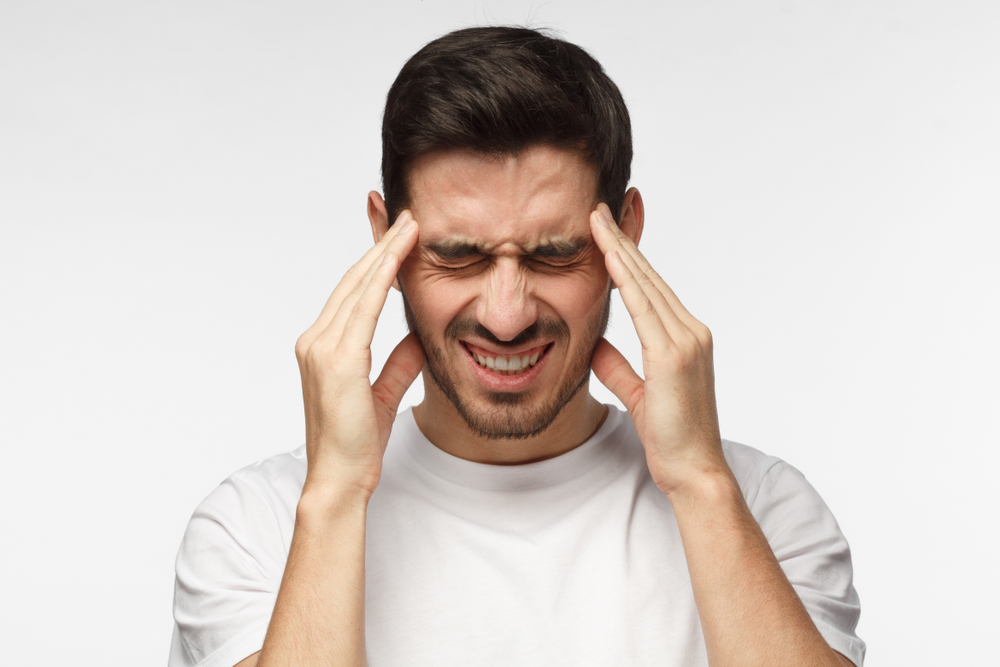Headache After Car Accident
It’s not unusual to experience a headache after car accident trauma. Headaches are usually your body’s way of signalling to you that something else is wrong. Headaches could be a warning sign of:
- Neck injuries,
- Whiplash,
- Concussion, and in extreme situations,
- Blood clot in the brain.

None of these conditions are anything that should be taken lightly. In the case of a neck injury, for example, long-term damage may result if you don’t treat the problem immediately.
It’s important to see a doctor as soon as possible if you were recently in a car accident and are now dealing with headaches. An experienced Car Wreck Doctor can recommend a course of treatment that may help minimize subsequent damage, get you back to work sooner, and ensure that your injuries heal without complication. Contact us today to learn more.
Types of Headaches After Car Accident
Headaches can be a difficult symptom to use when diagnosing an underlying condition, as they can be indicative of a variety different conditions. Until you are examined by a doctor, you likely won’t be able to determine the exact cause of your headaches.
Post-Traumatic Headache
Trauma to the head or neck during a car accident will often result in headaches that may not appear until days or weeks after the crash. These types of headaches can be the result of cranial fractures, bone bruises, or even nerve damage in the neck. In such cases, an x-ray can usually help determine the extent and location of the damage.
Post-Concussive Headache
Car accident victims who suffer whiplash or blunt force trauma to the head may experience migraine headaches. This can occur as a result of swelling in your brain. Symptoms may include nausea, sensitivity to light, sound, or smells, and memory loss as well as confusion, anxiety, or irritability. When the headaches last for six weeks or longer, you may have post-concussion syndrome.
Headache Due to Muscle Spasms
Headaches may also result from damage to the muscles caused by whiplash. The violent change in the velocity of your vehicle causes tears to the muscles and tendons in your neck. You may also have disc injuries to the cervical spine, herniated or bulging discs, or other nerve damage. In these cases, muscle relaxants and anticonvulsants can help manage muscle spasms and pain.
Whiplash Headache
Whiplash can not only cause concussions, but the resulting damage to the tendons, ligaments, and neck can also lead to severe headaches. In these cases, moving the neck as little as possible for an extended period of time will allow the injury to heal. Pain medication may be indicated to reduce inflammation to the affected areas. This type of headache may take days after the accident to appear.
Fracture Headache
A fractured neck bone or skull can cause fracture headaches. In cases where you also have a concussion, you will need to be monitored as the resulting swelling can cause the brain to herniate pushing through the fracture in the skull.
Why You Need to Seek Medical Treatment as Soon as Possible
You can experience a headache without even realizing it. This is because your brain has a gating mechanism for pain. If you have pain in two areas of the body, the greater the pain is the one that you will feel. You may, however, have other symptoms such as nausea, vomiting, dizziness, lightheadedness, and an overall feeling of fogginess. These symptoms should not be dismissed.
Additionally, a car accident victim can experience multiple injuries that cause headaches. You may have a concussion and substantial damage to your spine or neck as well that is causing pain. It’s very important that you see a doctor soon after the accident so that they can diagnose these injuries and provide appropriate treatment.
Treatment for Headache After Car Accident
Since headaches are often a symptom of other car accident injuries, your doctor will first make a determination as to the cause of your headache.
If you have a concussion, you will be required to rest for a period of time so as to avoid getting a second concussion. Your brain has a pressure gauge which prevents for over-swelling; if you suffer a second concussion soon after the first, this can cause that pressure gauge to short-circuit, resulting in serious damage and even fatal injuries.
In cases where the headaches are being caused by damage to the nerves, muscles, or tendons in your neck, your doctor may treat these underlying issues first. As treatment progresses, the headaches may gradually go away on their own as the underlying conditions get better. Muscle relaxants, anticonvulsants, and physical therapy may help in relieving both pain and headache symptoms.
Speak to a Car Wreck Doctor Today
After a car accident, you may suffer headaches that appear days or even weeks after the impact. An experienced Car Wreck Doctor can help you address the injuries causing your headaches, as well as alleviate the underlying pain and reduce the likelihood of headaches becoming a chronic condition.
